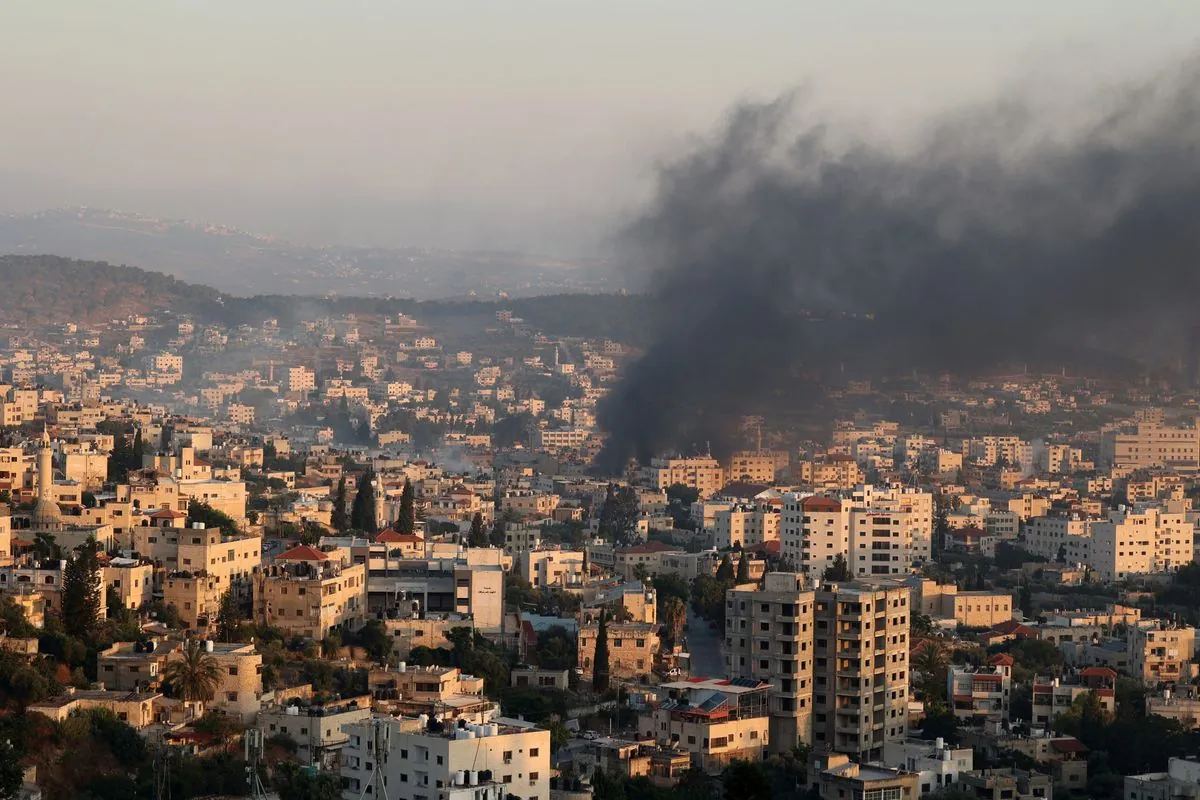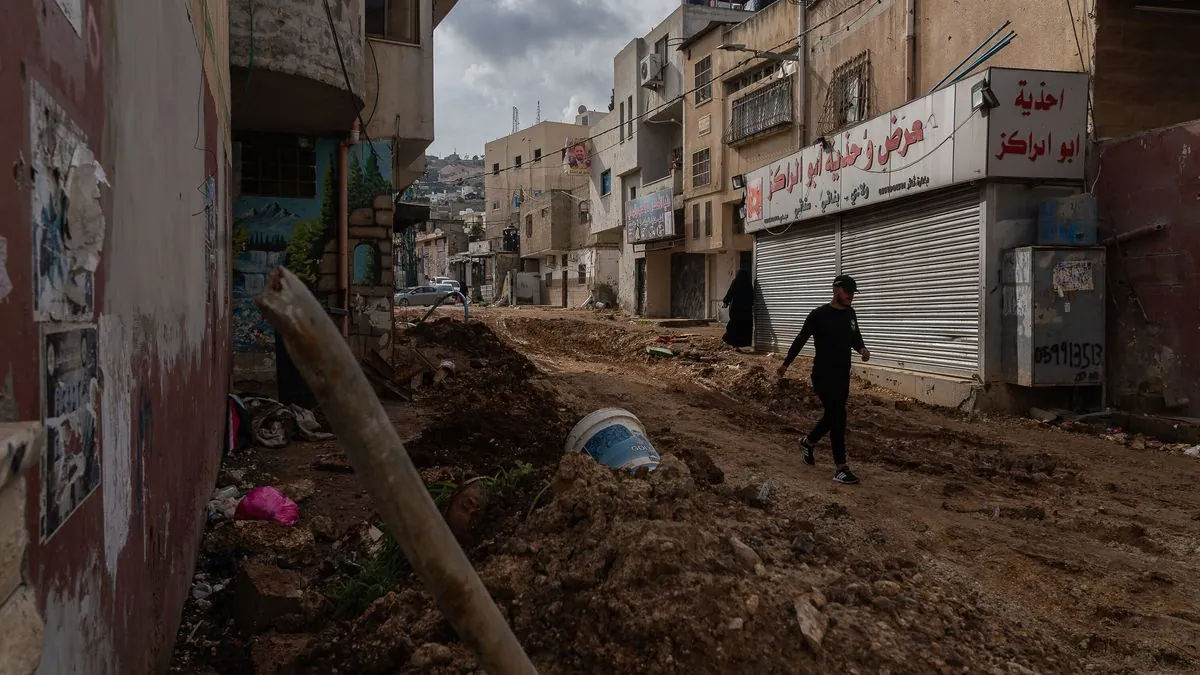Jenin: West Bank's Flashpoint of Conflict and Resilience
Jenin, a Palestinian city in the West Bank, remains a focal point of Israeli-Palestinian tensions. With a history of conflict and a refugee camp housing 14,000, it continues to be a site of frequent military operations and militant activity.

In the northern reaches of the West Bank, the city of Jenin stands as a testament to the enduring Israeli-Palestinian conflict. This urban center, with roots stretching back to the Bronze Age, has become synonymous with resistance and struggle in recent years.
At the heart of Jenin lies a refugee camp established in 1953, now home to approximately 14,000 individuals. These residents, descendants of those displaced during the 1948 establishment of Israel, face significant economic challenges. The camp's high unemployment and poverty rates have contributed to a pervasive sense of alienation and hostility towards Israel.

The city's strategic location, just 43 kilometers southeast of Haifa, has made it a focal point for various Palestinian militant groups. Organizations such as Hamas, Islamic Jihad, and the Jenin Brigade have found support among the local population, particularly the younger generation raised in an era of social media and disillusionment with mainstream Palestinian leadership.
Jenin's history as a battleground dates back to the Second Intifada (2000-2005). During this period, the city witnessed intense conflict, including a major Israeli military operation in April 2002. A subsequent UN report documented significant casualties on both sides and highlighted the complex nature of urban warfare in densely populated areas.
In recent years, Jenin has experienced a resurgence of violence. Since March 2022, Israeli forces have conducted numerous raids in the area, citing the need to counter militant activities. These operations have resulted in multiple casualties and heightened tensions.
The Palestinian Authority's influence in Jenin has waned, with Hamas and Islamic Jihad gaining ground. This shift reflects broader changes in Palestinian politics and the stagnation of peace negotiations since their collapse in 2014.
Despite the ongoing conflict, Jenin remains a center of Palestinian culture and education. The city is home to the Arab American University, founded in 2000, and the Freedom Theatre, established in 2006 as a community-based cultural center in the refugee camp.
As of August 2024, the situation in Jenin remains volatile. Recent Israeli operations, including airstrikes and ground incursions, have resulted in casualties and further strained relations. The city's future hangs in the balance, caught between the aspirations of its residents and the broader geopolitical realities of the Israeli-Palestinian conflict.
"52 Palestinians had been killed in Israel's Jenin incursion, as many as half of them civilians, while Israel lost 23 soldiers there."
The international community continues to monitor developments in Jenin closely, recognizing its significance as a barometer for the wider Israeli-Palestinian situation. As the city navigates its complex present, its rich history – from ancient "Ein-Ganim" to modern-day Jenin – serves as a reminder of the deep roots and enduring resilience of its people.


































